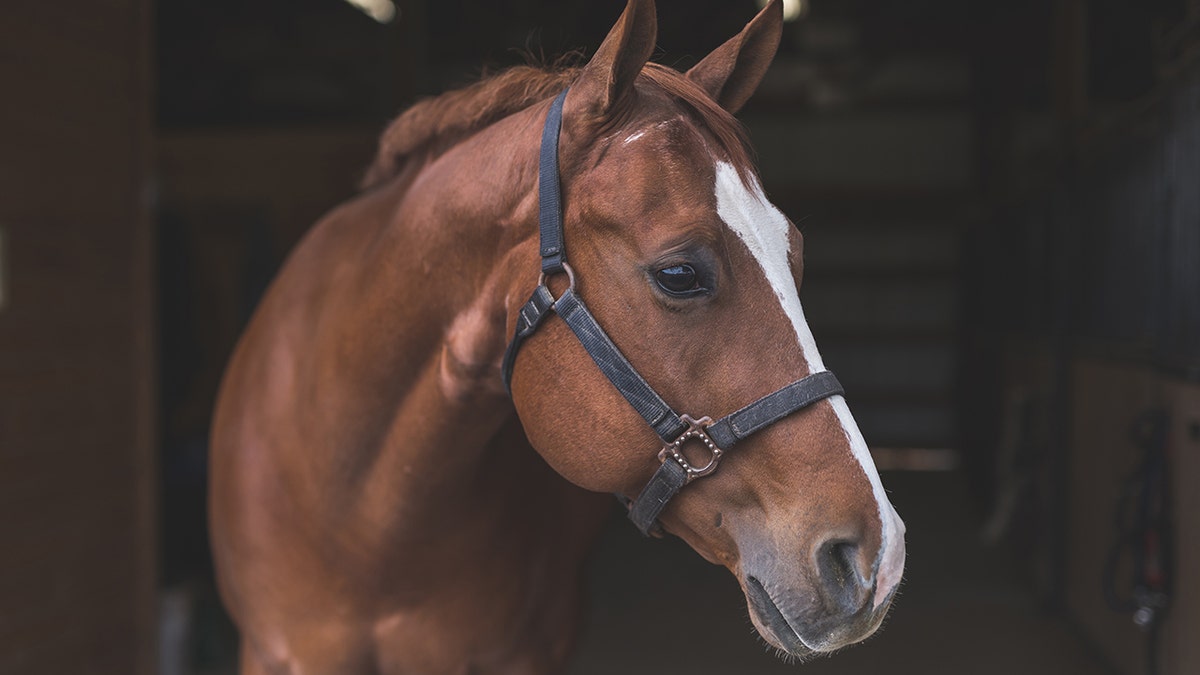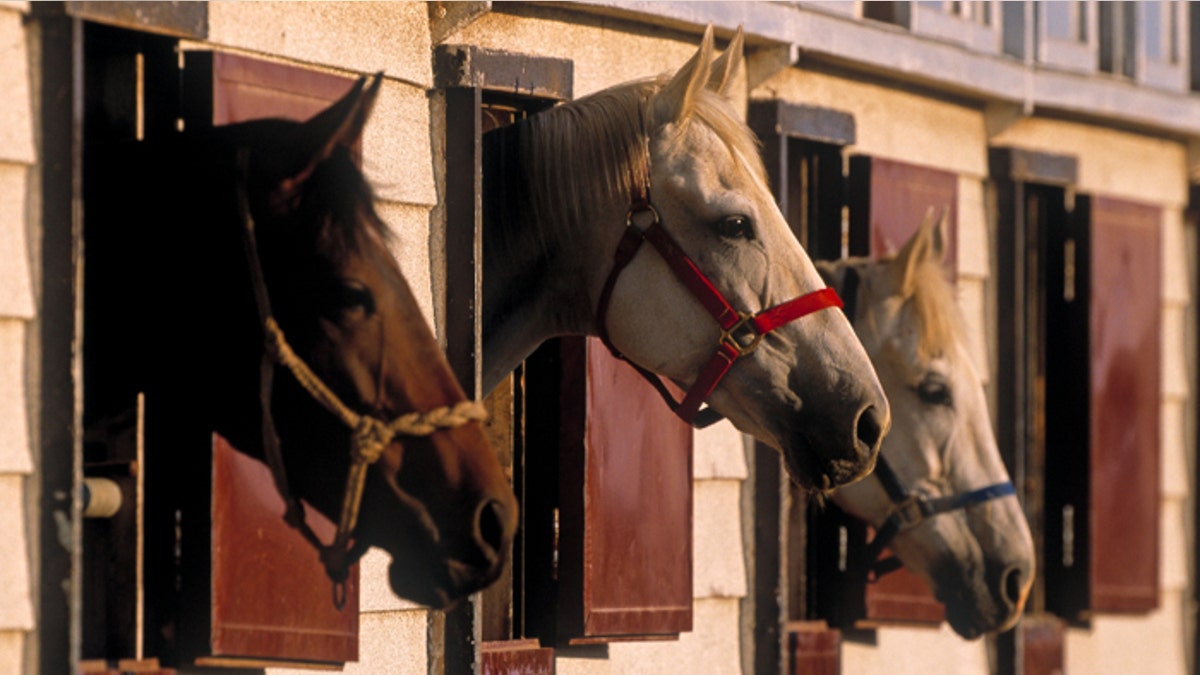Warrior Ranch Foundation uses horses to help veterans with PTSD
Founder and President Eileen Shanahan, U.S. Army Ranger veteran Paul Martinez, U.S. Coast Guard veteran Maddie Feaster and ranch trainer Gina Lamb detail their organization that rescues and retrains horses in effort to rehabilitate veterans combatting PTSD.
"Fox & Friends Weekend" co-hosts Pete Hegseth and Rachel Campos-Duffy, as well as Fox News contributor Joey Jones, welcomed New York-based Warrior Ranch Foundation representatives to their outdoor set on Sunday — along with a few very special equine friends.
Eileen Shanahan is the founder and president of the Warrior Ranch Foundation, headquartered in Calverton, N.Y.
She was joined by U.S. Army Ranger veteran Paul Martinez, U.S. Coast Guard veteran Maddie Feaster and Warrior Ranch trainer Gina Lamb — and together they explained how this equine therapy organization helps veterans and first responders heal from PTSD.
"We do horse interaction therapy," explained Shanahan, who is also an editor with Fox News.

Warrior Ranch Foundation rescues and trains horses — then matches them with veterans and first responders who can benefit from healing therapy.
"What we do is we teach our participants about the nature of horses and the way horses communicate with each other — and that’s through body language."
Warrior Ranch Foundation rescues and trains horses, then pairs them up with veterans and first responders who need their healing energy.
"Think about it: We're stepping into their herd — so it’s about respect and trust."
Shanahan explained that they teach simple exercises to learn to communicate with the horses, with a focus on safety.
"Now, think about it: We're stepping into their herd — so it’s about respect and trust," she said.
AMERICA'S MILITARY AND VETERANS WITH PTSD HAVE A FIGHTING CHANCE TO HEAL
"You have to get the trust of that horse," Shanahan continued. "When horses are out in the field seeing who the leader is, they’re poking each other, biting each other, kicking each other."
She explained that they’re not hurting each other, noting that they each weigh about 1,000 pounds, "but when we enter their herd, that’s the only way they know how to communicate" — hence the foundation’s focus on safety.
"If they start communicating like that to us, and we’re not leading them, we’re going to end up in the hospital," Shanahan emphasized.
"They’ll listen to our energy. They can feel our heartbeat from five feet away."
"So, it’s all about safety. A horse can feel a fly landing on them, so you only need a little amount of energy to move that horse … They will mirror our energy," she said.
She explained that horses are "prey" animals, while humans are "predators."
"They’re hyper-vigilant," she said of the horse mindset.
"They’ll listen to our energy. They can feel our heartbeat from five feet away."

"You're never going to fool a horse," said Maddie Feaster, a Coast Guard veteran, speaking on "Fox and Friends Weekend."
U.S. Coast Guard veteran Maddie Feaster explained exactly how working with horses helps a veteran or first responder who is dealing with PTSD.
"It helps veterans because it’s entirely based on trust," she said. "A lot of veterans come at [equine therapy] from a distrustful place, and you’re never going to fool a horse. Whether you’re feeling anxious or fearful, they’re going to know."
PEOPLE ARE TURNING TO HORSE THERAPY TO IMPROVE MENTAL HEALTH DURING PANDEMIC
The work and the healing are done in the trust-building process, she noted. "You have to build that trust up, and that builds your confidence and self-awareness," she said.
"You can’t out-brawn a horse," added U.S. Army Ranger veteran Paul Martinez.
"They’re faster than you’ll ever be, and they’re probably as smart as you are, too. It’s very humbling. You have to look within and be creative — just find a way [to work with the horse]."
The idea is to stay present, focused and in the moment — with the help of a trained four-legged companion at your side.
Trainer Gina Lamb showed off some basic skills that help keep humans safe when working with horses. Aided by a horse on set, Lamb made the animal move backward, forward and sideways, all with minimal effort.
That’s why this is such a good tool for veterans, Martinez noted.
"You can’t do this without mindfulness. You can’t be back there in Afghanistan [in your thoughts] and [at the same time] try to do something with a horse in a safe manner in an arena."
FOLLOW US ON FACEBOOK FOR MORE FOX LIFESTYLE NEWS
The idea is to stay present, focused and in the moment — with the help of a trained four-legged companion at your side.
"If your mind’s elsewhere, the horse is going to know. And they’re going to say, ‘You’re not paying attention, you’re asking me to do something that maybe I don’t want to do' — and they’re going to take advantage of that," added Martinez.
CLICK HERE TO GET THE FOX NEWS APP
For anyone wanting more information about Warrior Ranch Foundation, its website is Warriorranchfoundation.org.











































